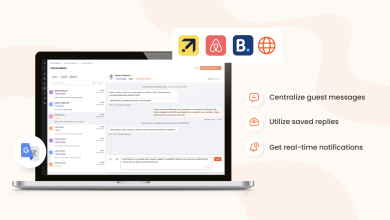What Is Hotel Revenue Management? Strategies and Methods

In the hospitality industry market conditions and consumer behavior constantly change. It has become an art itself to sell to the right customer at the right time with the highest profit. This is where revenue management comes into play. In 2024 an accommodation business can’t survive in the competitive playground of the hospitality industry. A hotel revenue management strategy is a must. Here is everything you need to know on this subject and how it is done most effectively:
What is revenue management?
Hotel revenue management aims to maximize revenue by employing a range of strategies to optimize a hotel’s financial performance. It finds the most profitable way to sell the inventory by analyzing trends, competitors, and markets thus creating the most effective pricing strategy.
In a nutshell, hotel revenue management is about selling your inventory to the right guest at the right time, whether it’s rooms, food, beverages, or amenities. This entails segmenting guests, understanding their needs, and supplying those needs at the optimal price point.
What is the purpose of revenue management?
Revenue management techniques aim to balance supply and demand in such a way that the company can sell its products or services at the highest possible price while still ensuring that all inventory is utilized efficiently.
This is particularly crucial in the hospitality industry where demand fluctuates or inventory is perishable, allowing businesses to optimize their revenue streams and enhance overall performance.
In the end, the main purpose of revenue management is to create strategic pricing to reach the maximum amount of revenue and profitability.
What is the difference between yield management and revenue management?
Yield management and revenue management are often used interchangeably yet they have areas where they defer. It is important to know what both of this concept entails so that you can be more precise in your strategy.
Yield management is a strategy developed for the airline industry in the 1970s, its purpose was to increase revenue by analyzing demand. With time other industries including hospitality have adopted this strategy. This concept evolved into revenue management in the early 1980s with the help of American Airlines CEO Robert Crandall and has become a common practice in the hospitality business, airline companies, and restaurants.
When yield management and revenue management are analyzed it can be seen that they both focus on creating the right pricing strategy. To maximize revenue their goal is to sell the right inventory to the right customer, revenue management however takes this one step further. It includes pricing optimization, demand forecasting, distribution channel management, and marketing tactics for its strategy.
Therefore it can be said that revenue management includes yield management and extends beyond what it has to offer.
Why is revenue management important in the hospitality industry?
Revenue management has become a staple for the hospitality industry, emerging as the go-to strategy for increasing revenue.
By meticulously analyzing market trends, consumer behavior, and historical data, revenue management empowers businesses to make informed decisions about pricing, inventory, and distribution channels. This data-driven approach allows them to optimize revenue streams and maximize profitability.
Revenue management possesses the transformative capability to revolutionize businesses.
Effective revenue management includes creating the right pricing for each room, service, and amenities to maximize profit. Revenue management keeps pricing dynamic, which means that pricing changes according to seasons, events, economy, and many more outside factors that will affect demand.
A hotel room is a perishable inventory, if it is not booked, the hotelier can’t profit from it. Revenue management not only analyzes the current factors but does a forecast as well, by taking advantage of data it can predict future demand and adjust your pricing accordingly.
Hotel revenue management solutions
Implementing a revenue management strategy is becoming easier with the ever-evolving technology. Different tools and software are making this strategy more accessible to properties and hotels of every size.
A hotel revenue management software should be able to do data analysis to dynamically adjust room rates based on factors such as demand, occupancy levels, competitor pricing, and market trends. This data analysis should include forecasting future demand for rooms.
Hotel revenue management software should also do inventory management to help provide insights into room availability, restrictions, and allocation across various distribution channels. Another important thing these tools should do is to be able to connect with channel managers and property management systems. Getting this data from connecting with OTAs, GDS, and metasearch engines helps with real-time data exchange.
Building revenue strategies with HotelRunner
The best way to increase your revenue is to access data-driven smart automation. HotelRunner Autopilot can provide you with a system that runs complex pricing and sales strategies for you, making sure you are always profitable, efficient, and winning.
Forecasting is also an integral part of revenue management as it provides insights into future demand patterns, allowing businesses to make informed decisions to optimize their revenue potential. HotelRunner Insight helps businesses by leveraging data analytics to forecast future demand accurately.
HotelRunner is here to help you at every step of the way. Feel free to contact our team and crack the revenue management code.



